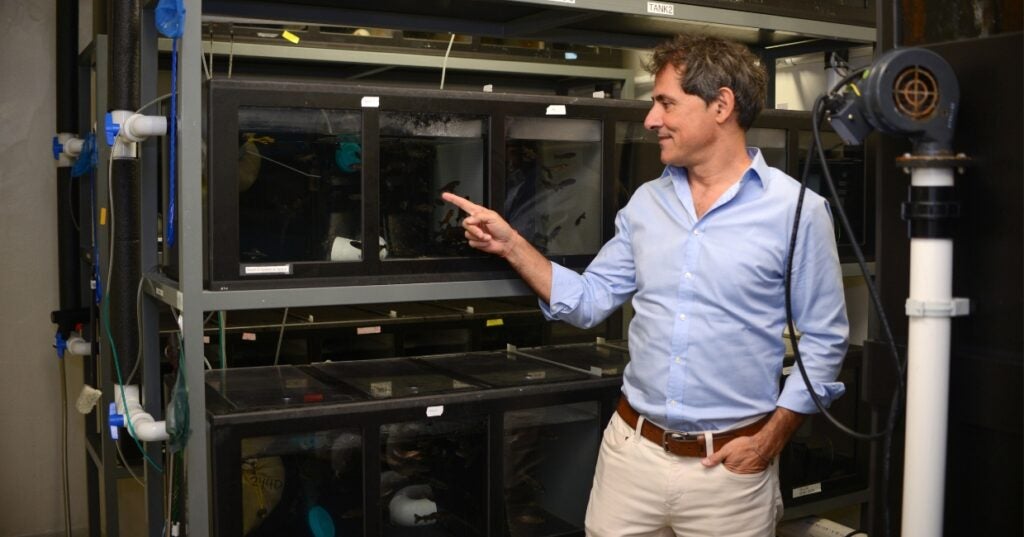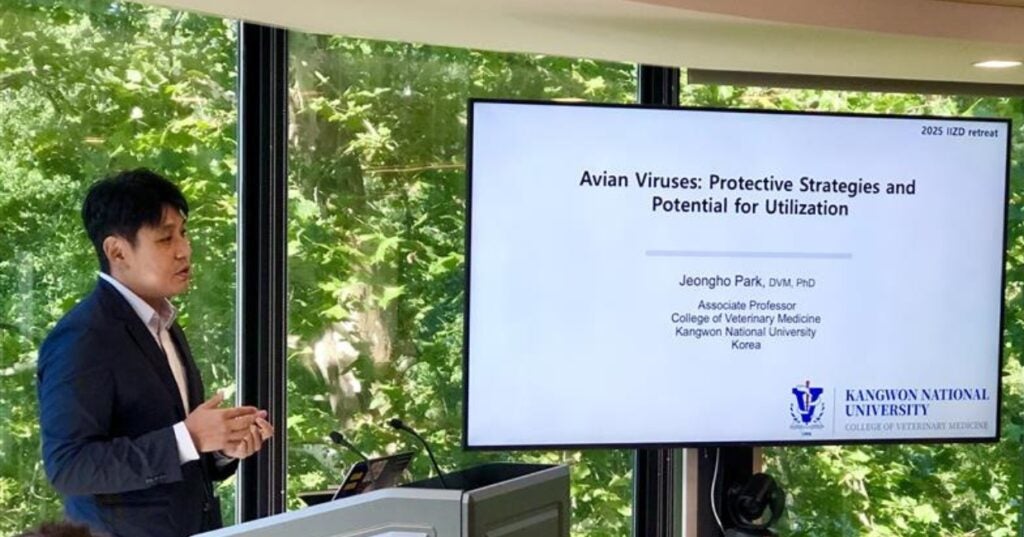The University of Pennsylvania’s School of Veterinary Medicine Announces Infectious and Zoonotic Disease Fellowship Recipients

The Institute for Infectious and Zoonotic Diseases at the University of Pennsylvania’s School of Veterinary Medicine (Penn Vet) today announced inaugural Martin and Pamela Winter Infectious Disease Fellowships of $35,000 each to two, early-career biomedical scientists. The fellowships represent the Institute’s long-term vision of supporting research investigators and future leaders in the biomedical field to understand the challenges associated with zoonotic infectious diseases of wildlife and humans.
The Martin and Pamela Winter Infectious Disease Fellows are:
Recipient: Khabadire Tlotleng
Institution: Botswana University of Agriculture & Natural Resources
Project: Identification of Canine parvovirus variants
Mentor: Eman Anis, DVM, MVSc, PhD, ACVM; assistant professor of Pathobiology, School of Veterinary Medicine, University of Pennsylvania; section head, Molecular Diagnostics at the Pennsylvania Animal Diagnostic Laboratory System (PADLS) at New Bolton Center.
Recipient: Matthew Martinez
Institution: University of Pennsylvania
Project: Defining invasion strategies of malaria parasites
Mentor: Yi-Wei Chang, PhD; assistant professor of Biochemistry and Biophysics, Perelman School of Medicine, University of Pennsylvania.
“We are pleased to select Khabadire and Matthew as our inaugural Martin and Pamela Winter Infectious Disease Fellows,” said De’Broski R. Herbert, PhD, Presidential Associate Professor, associate professor of Pathobiology, and associate director of global affairs and education at Penn Vet’s Institute for Infectious and Zoonotic Diseases. “The unique perspectives and abilities of these trainees will be highly valuable in Penn Vet’s mission to confront emerging and re-emerging zoonotic and vector-borne diseases.”
The basic laboratories participating in this fellowship program are focused on infectious disease investigations of enteric pathogens, vector biology, vaccine development, tropical medicine, public health, microbiome and functional genomics, immunology, and ecology. In addition to laboratory or field-based research, the fellowship integrates coursework along with programming that highlights Penn Vet’s infectious disease research and expertise, and assurance to the career development of early-career scientists.
“The public’s awareness of infectious diseases has never been higher; the COVID pandemic has made it clear that there is an imperative to expand our focus and approach to infectious diseases.” said Christopher Hunter, PhD, Mindy Halikman Heyer Distinguished Professor of Pathobiology, and Director of Penn Vet’s Institute for Infectious and Zoonotic Diseases. “These fellowships represent our longer-term commitment to prepare scientists not only for their future careers, but to support vital public health initiatives related to infectious diseases.”
Related News

Behind the Breakthroughs: J. Oriol Sunyer
J. Oriol Sunyer explores how studying the evolution of the immune system reveals surprising connections between fish and human immunity, and what these discoveries could mean for the development of…

Penn Vet’s Institute for Infectious and Zoonotic Diseases Hosts Second Annual Research Retreat
The University of Pennsylvania (Penn) School of Veterinary Medicine’s (Penn Vet) Institute for Infectious and Zoonotic Diseases (IIZD) hosted its annual Faculty Research Retreat on September 3 at the Brandywine…

A New Study from Penn Vet Reveals an Unsung Immune Defender as a Key Guardian of Gut Health and Metabolism
A pioneering new study published in Nature Microbiology, led by Oriol Sunyer, PhD, and a team of researchers at Penn Vet and the University of New Mexico, have uncovered a…
About Penn Vet
Ranked among the top ten veterinary schools worldwide, the University of Pennsylvania School of Veterinary Medicine (Penn Vet) is a global leader in veterinary education, research, and clinical care. Founded in 1884, Penn Vet is the first veterinary school developed in association with a medical school. The school is a proud member of the One Health initiative, linking human, animal, and environmental health.
Penn Vet serves a diverse population of animals at its two campuses, which include extensive diagnostic and research laboratories. Ryan Hospital in Philadelphia provides care for dogs, cats, and other domestic/companion animals, handling more than 30,000 patient visits a year. New Bolton Center, Penn Vet’s large-animal hospital on nearly 700 acres in rural Kennett Square, PA, cares for horses and livestock/farm animals. The hospital handles more than 6,300 patient visits a year, while our Field Services have gone out on more than 5,500 farm service calls, treating some 22,400 patients at local farms. In addition, New Bolton Center’s campus includes a swine center, working dairy, and poultry unit that provide valuable research for the agriculture industry.
